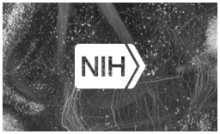
These three BRAIN Initiative funding opportunities span from developing new theories and computational models, to creating tools for gene editing in marmosets and next generation human brain imaging. Application due dates are coming up in September and October.
RFA-EB-20-001 Proof of Concept Development of Early Stage Next Generation Human Brain Imaging (U01; Reissue of RFA-EB-19-001)
High-risk, proof-of-concept studies are a critical first step to creating new neuroimaging tools and improving their spatial and temporal resolution. The goal of this NOFO is to support the early stage development of brand-new noninvasive neuroimaging methods or exciting bold approaches for current methods that will lead to transformative advances in our understanding of human brain function. Innovative imaging tools often span numerous approaches. Examples of tools applicable to this award include, but are not limited to, new noninvasive tools that have not been used in humans, new approaches that increase the spatial resolution of existing methods, behaviorally active human neuroimaging, and advanced computational techniques for real-time image reconstruction. Tool development under this award will require diverse expertise arising from interdisciplinary teams capable of developing prototypes and conducting small-scale studies in mammals or humans. Thus, this NOFO encourages collaborative academic-industrial partnerships. Applications are due on September 3, 2020. For more information, please view the full notice.
RFA-EB-20-002 Theories, Models and Methods for Analysis of Complex Data from the Brain (R01; Reissue of RFA-EB-17-005)
Advances in novel neurotechnologies, largely made possible by the BRAIN Initiative, are increasingly producing enormous, complex datasets. Now, novel theoretical and analytical approaches are needed to harness the power of these data, making them useful for understanding how the brain and its circuits function. This notice of funding opportunity (NOFO) promotes the development of new theories, computational models, and analytical tools to enhance our knowledge of the human brain from existing neuroscience data. Proposed projects could develop tools to integrate current theories or formulate new ones, new frameworks or multiscale/ multiphysics models that generate testable hypotheses used to drive new experiments, and/ or new analysis methods to support or challenge a hypothesis about the brain. Projects must focus on theories about neural circuit mechanisms, models of circuit structure and function, and/ or computational methods of analysis of neural activity data. Theories can include the use of specialized animal models. Applications should include plans for how tools and software will be disseminated to the neuroscience research community. Applications are due on September 14, 2020. For more details on topics relevant to this award, please see the full notice.
RFA-DA-21-006 Tools for Germline Gene Editing in Marmosets (U01; New)
Innovative technological advances in germline and brain-specific gene editing, especially transgenic studies in rodents, have provided us valuable tools for interrogating complex neural circuits responsible for animals’ behaviors. With relatively developed frontal cortices and neural structures unique to primates, common marmosets (Callithrix jacchus) possess sophisticated cognitive functions and exhibit cooperative social behavior. Now that they can be made amenable to genetic engineering, marmosets are well-suited for rigorous research involving the genetic study of behavior and/or brain disorders. Last year, the NIH released two NOFOs focused on developing marmoset colonies and coordination centers. Building on these efforts, this new NOFO aims to develop tools and technologies to conduct scientifically rigorous, ethical, efficient, and cost-effective research that supports gene editing studies in marmosets. Proposed studies should answer critical scientific questions that require the use of genetically modified marmosets. Further, study design must balance potential benefits to human health and/ or scientific advancement with the ‘Three R’s’ (replace, reduce, and refine) of ethically-guided experimental methodology. Applications should propose to optimize breeding technologies, develop germline and somatic gene editing tools (e.g., CRE-driver tools, CRISPR technologies), or promote infrastructure to support these resources. Applications are due on October 15, 2020 and October 14, 2021. For more details and a list of relevant research topics, please see the full notice.
